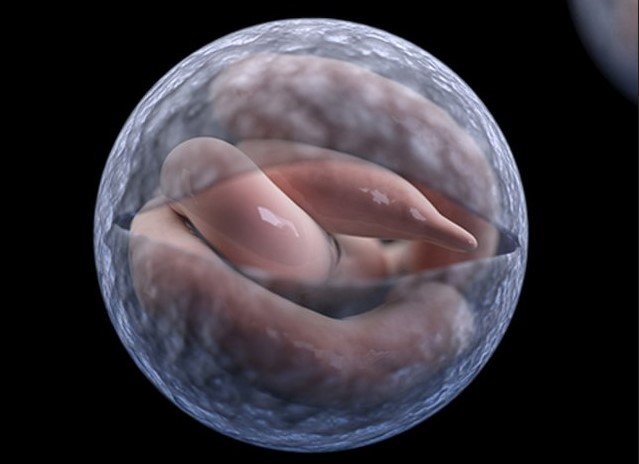Infection
Europe Faces Surge In Gastric Infections
Image of microscopic parasite: Cryptosporidium.
Credit: Centers for Disease Control and Prevention/Creative Commons Attribution-Share Alike 4.0
European health authorities have raised concerns over a significant rise in gastric infections, particularly in Spain, and the UK.
According to 20 Minutos, the illness is triggered by the Cryptosporidium parasite, leading to watery diarrhoea and gastrointestinal issues, with severe implications for young children and potentially fatal for those with weakened immune systems.
From January until October 31, 2023, Spain has reported a drastic increase in cases, jumping from 815 in 2022 to 3,462. The most significant outbreak affected over 450 individuals in September, centred around Tarazona, Zaragoza. This surge has led to ongoing water consumption restrictions in the area.
Understanding The Infection And Its Spread
The infection is caused by Cryptosporidium, a tiny organism, measuring between 3 and 6 microns. It is widespread in nature, transmitting between animals and humans. The ‘parvum’ and ‘hominis’ subspecies are most common, with the latter being more prevalent in Spain.
Isabel de Fuentes, an expert in intestinal protozoa, explained its prevalence in both animals and humans.
Transmission occurs when thousands of Cryptosporidium eggs are excreted in faeces, contaminating the environment. The ingestion of contaminated water, fruits, or vegetables can lead to indirect infections. Its spread can also result from direct human-to-human contact when there is a lack of personal hygiene.
Symptoms And Impact
In healthy individuals, signs of the infection might not show themselves. However, the typical symptoms include watery diarrhoea, severe abdominal pain, vomiting, fever, weight loss, and dehydration.
These symptoms usually subside within two weeks. The disease poses a serious threat to young children and those with an impaired immune system. In 2021, Spain saw 144 hospitalizations but thankfully no fatalities due to the infection.
Rising Incidence And Seasonal Peaks
There’s been a notable increase in cases across several European countries, especially during the summer months of July, August, and September.
Spain, along with Luxembourg, the Netherlands, and the UK, are among the most affected. The European Centre for Disease Control and Prevention (ECDC) has identified vacation spots in Spain as infection hotspots.
Cryptosporidiosis shows seasonal peaks, often in summer. This is attributed to relaxed precautionary measures in swimming pools and other recreational waters. The organisms are resistant to chlorine, the most common disinfectant in pools.
In Tarazona, Cryptosporidium oocysts were found in the Queiles River, leading to water consumption restrictions in several municipalities.
Ireland And The UK
Ireland and the UK have recently raised concerns about Salou, Tarragona, due to a surge in health cases linked to the area. In Ireland, out of 50 detected cases, 37 have been traced back to trips to Salou.
Similarly, the UK’s report on 2,411 cases included a segment of individuals who had travelled to mainland Spain, and the Balearic Islands. However, British researchers have noted that these cases form a minor portion of the total, with the majority of infections occurring domestically.
The European Centre for Disease Prevention and Control (ECDC) has emphasized the need for further cross-border investigations to determine the origins and scope of these outbreaks.
Meanwhile, Spain’s Ministry of Health has tasked the Carlos III Institute with assessing the risk posed by this intestinal parasite. Officials from the institute are expected to release their findings shortly.
Preventive Measures And Recommendations
The Irish Government has advised its citizens to adopt stringent hygiene practices while travelling in Spain and other European countries.
This includes frequent hand washing, cautious consumption of tap water, and avoiding swimming pools if hygiene standards are doubtful. People are advised to stay out of pools for at least two weeks after diarrhoea symptoms cease.
The rise in cryptosporidiosis cases in Spain and other European countries calls for heightened awareness and preventive measures, particularly in communal and recreational water environments.
The disease poses a significant health risk, especially to vulnerable groups, underlining the need for vigilance and adherence to hygiene protocols.
Thank you for taking the time to read this article. Do remember to come back and check The Euro Weekly News website for all your up-to-date local and international news stories and remember, you can also follow us on Facebook and Instagram.

